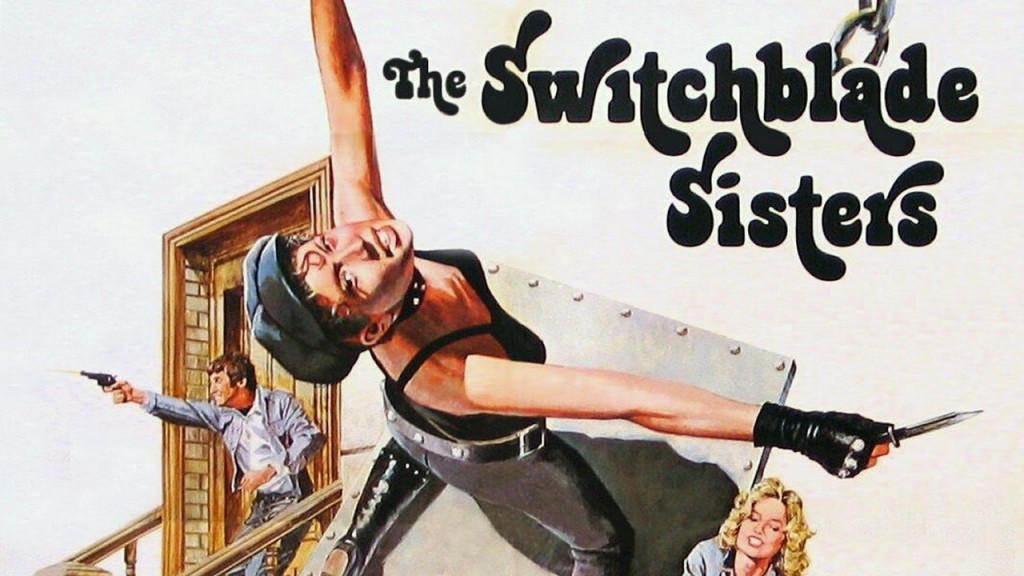Switchblade Sisters Review
 I’m a big fan of Jack Hill. I adore Spider Baby and also have a fondness for his run of four consecutive Pam Grier films, The Big Doll House, The Big Bird Cage, Coffy and Foxy Brown. Another favourite is Switchblade Sisters, perhaps the definitive American girl gang film. Switchblade Sisters does not disappoint both as a genre piece and in the canon of Jack Hill films.
I’m a big fan of Jack Hill. I adore Spider Baby and also have a fondness for his run of four consecutive Pam Grier films, The Big Doll House, The Big Bird Cage, Coffy and Foxy Brown. Another favourite is Switchblade Sisters, perhaps the definitive American girl gang film. Switchblade Sisters does not disappoint both as a genre piece and in the canon of Jack Hill films.
Switchblade Sisters follows The Silver Daggers, a male gang, and their female counterparts, The Dagger Debs. The Dagger Debs are led by Lace, memorably played by the Cagney-esque Robbie Lee. Lace is in a relationship with Dominic, the head of The Silver Daggers, and it is their relationship that holds the two gangs together. Enter Maggie (Joanne Nail), who joins the Debs and represents a challenge to the status quo and a rival to the second in command of the Debs, Patch (Monica Gayle). The introduction of Maggie to the gang irritates Patch who feels undermined by this new rival. In this 70s retelling of Othello, Patch is Iago to Lace’s Othello.
Upon joining the gang Maggie is raped by Dominic but there is the rather disturbing implication that Maggie is complicit in the event taking place. What could be an extremely morally troubling sequence is actually cleverly orchestrated by Hill, as the context of this scene within the film complicates this immediate reaction. Maggie is placed even more in an opposing position to Lace and whilst Lace is conveniently in hospital, Maggie takes over as leader of the gang and separates them from the oppressive overshadowing of The Silver Daggers. It is this move and the subsequent behaviour of the Debs that marks them out interestingly as Feminist heroines rejecting any need for men. The Debs clash first against a gang led by by the amusingly named Crabs (Chase Newhart) and then ultimately against The Silver Daggers, aided by a Maoist black gang, friends from Maggie’s mysterious past.
The film contains some incredible action set pieces, including a rollerdisco shootout, with fantastic tracking shots and a lot of violence, and a street battle with an armoured car, Molotov cocktails and a whole host of automatic weapons. At times the film is also extremely funny with great oneliners by other gang members such as Donut (played by Lenny Bruce’s daughter Kitty Bruce) and the exceptionally amusing Bunny (Janice Karman). The brilliance of the film though is in what Jack Hill does best, what he describes on a commentary track to the film as “the laugh that sticks in your throat”. The film is fun and you can’t help but enjoy it but then you realise, as Tarantino also points out on the commentary, that you really care about the characters and the real drama in the film is actually quite affecting.